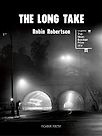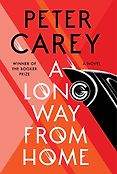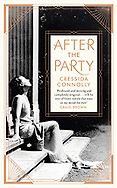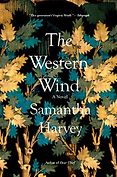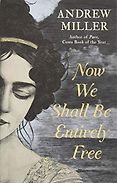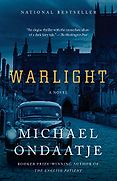What ingredients make for good historical fiction?
‘Good’ is a difficult word, isn’t it, since it will mean different things to different readers, but I think everybody would agree that historical fiction, like all fiction, has to grip, to draw the reader in, to make the reader care. The criteria for the Walter Scott Prize also include originality and innovation—the genre of historical fiction needs to keep evolving and freshening—as well as durability.
This last is tricky. Tastes change, so it’s hard to know what will and what won’t last. Our deciding factor is quality of writing. This doesn’t mean all the writing has to be the same; it means that whatever voice or tone the writer has chosen needs to be pitch perfect and unfaltering from start to finish. That’s a stern test, but if you look at the shortlists from the Walter Scott Prize’s inception to its tenth anniversary, we hope you’ll see it’s a test that writers recognise as the great challenge of good historical fiction, and relish.
Could you tell me something about where the prize’s requirement that the majority of the story should be set at least 60 years ago comes from?
That’s easy for us to answer! We are the Walter Scott Prize, and Walter Scott himself gave us the cut-off point when he subtitled his novel Waverley, the first historical novel in the Western tradition, ‘Tis Sixty Years Since. For Waverley, this meant the 1745 Jacobite rebellion during which the action takes place. But, as David Lodge reminds us, Scott’s subject was also the “otherness” of the past, its “culture, ideology, manners and morals” being as much Scott’s subject as plot and character. If, in Scott’s judgement, the passing of 60 years was enough to generate a whole new genre, bringing together through lively story a “remote then” and an “immediate now”, it’s enough for us. So, to qualify for the Walter Scott Prize, more than 50% of the novel must be set at least 60 years before the current prize year.
Let’s discuss this year’s winner first: The Long Take, by Robin Robertson. This novel-in-verse is very highly acclaimed. As well as its Walter Scott Prize win, it has also been shortlisted for the Booker and won both the Roehampton Poetry Prize and the Goldsmiths Prize for Fiction. Firstly, might you tell us a little about the book?
It’s hard to categorise The Long Take, but essentially we follow the inner journey of a Canadian veteran of the Normandy Landings as he tries to rebuild his life in the bleak and sometimes violent streets of post-war America. An outsider now, unable to settle back with his family and his love, he escapes the silence and “the long stare out to sea” of Nova Scotia and travels from New York to Los Angeles and San Francisco witnessing the destruction of communities in favour of cars, the sly horrors of McCarthyism and the forging of an America he won’t live to see. We meet Walker, “that is his name and his nature”, and a memorable cast of other characters in 1946, and through poetry, prose, filmic images and grainy black and white photographs—the text too offered like a series of film stills—we walk with him, right up to his final confession.
If that sounds depressing, don’t be put off. Robin Robertson may offer us great suffering, but he also offers great beauty and it’s this combination—suffering and beauty—that draws you back to this book again and again.
And what did the judges admire most about it?
There’s so much to admire in this book, but perhaps, to the Walter Scott Prize judges, what made the book a winner was the success with which The Long Take transcends conventional literary boundaries, keeping narrative drive and poetic pulse completely in balance.
This doesn’t mean that formal novelty will always win out. Not at all. Even without its unconventional form, The Long Take is a deeply moving, memorable and unexpected work. Add in the unconventional form and you have the Walter Scott Prize criteria laid out: original, innovative and (in our judgement) durable, with writing of such power that you occasionally have to stop to recover. Imaginatively (story, character, evocation of place and time) and technically (organisation, structure, pace, tone), The Long Take is a work of supreme artistry. Walter Scott would have read it and marvelled.
Praise indeed! Let’s look at the other shortlisted works of historical fiction. How about Peter Carey’s A Long Way From Home? The story follows a 1950s car race—“Two hundred lunatics circumnavigating the continent of Australia . . . over outback roads so rough they might crack your chassis clean in half”—before it spins off into an exploration of the treatment of Australia’s indigenous people. What do you like about it?
We loved the life, the energy, the chutzpah, the wonderful cast of characters and particularly the “rich, ripe voices” of the two narrators, Irene Bobs and Willie Bachhuber. A Long Way from Home is a blast of a novel so atmospheric you can smell the burning tyres and sniff the dry eucalyptus leaves. Peter Carey has taken the Redex Trial, a car-race round the continent of Australia, and hung on it the tale of a marriage and a country, of maps and map-less-ness, of glories and shames.
So far, so you might say, so conventional. You’d be wrong though, because even for a writer as experienced as Peter Carey it’s hard to write a rollicking picaresque which has, at its heart, the infamy of colonial oppression. We read this book with huge admiration, amused, amazed and moved in equal measure.
In an interview following his shortlisting, Carey explained that though he had written nine novels that could very accurately be described as historical fiction, he feels “compelled to insist that my primary engagement is not with the past but with our present terrifying age.” I found that very interesting; do you agree that it’s a function of historical fiction, to examine present concerns indirectly, or through the prism of the past?
The idea of a book having any kind of ‘function’ bothers me. To me, historical fiction is simply a genre of literature onto which writers and readers project their own preoccupations and concerns. These concerns may reflect current events or fears for the future, but may also simply be the immediate preoccupations of any reader at any time.
I think, though, that Walter Scott would agree with Peter Carey. Scott tells us himself that his own aim—we might call it a function—was to portray the Scots “in a more favourable light than they had been placed hitherto” and “to procure sympathy for their virtues and indulgence for their foibles”. As judges of the prize that bears Scott’s name, though the prize has of course broadened out far beyond Scotland, we hear him!
Get the weekly Five Books newsletter
Just thinking more deeply, though—the function of historical fiction is a lively question—it’s impossible to read, for example, Hilary Mantel’s Wolf Hall (winner of our prize in 2010) without drawing parallels with the so-called ‘strongmen’ of our own age, or read any of Tim Pears’ West Country trilogy without being resolved to save what’s left of the untrodden country he describes. But we need to take care. There’s a difference between readers of historical fiction drawing parallels or being moved to action, and writers of historical fiction feeling that influencing the reader, which of course can be malign as well as benign, is one of their functions. Prize-winning historical novels aren’t morality tales or even cautionary tales. They are first and foremost readable tales. If we don’t want to read them, they fulfil no function at all.
Next we have Cressida Connolly’s After The Party, which tells the story of a female British fascist, a middle-class follower of Oswald Mosley. Can you tell us a little more about it, and why it was shortlisted?
Such a good topic for a novel. Cressida Connolly’s book illuminates a sliver of history which, in the post-war rush of disassociation with even the briefest flirtation with fascism, is still uncomfortable, isn’t it? Aristocratic flirtation was marvellously addressed by Kazuo Ishiguro in The Remains of the Day, and After the Party offers a less socially elevated but perhaps more insidious slant. Phyllis Forrester isn’t so much heroine as dupe, or so the contemporary reader, her children safe from military call-up, smugly feels. Yet can you, hand on heart and forgoing hindsight, say that you’d have completely resisted the snare of the charismatic leader preaching war avoidance?
Connolly doesn’t overdo the discomfort. She’s too clever for that. Instead, she winds the hopes and fears of 1938 into a tale of sisters, the undercurrents of their relationships mirroring the early rumblings of the war. Why was After the Party on the shortlist? Because—apart from filling all the Walter Scott Prize criteria—Cressida Connolly’s writing is gently remorseless, gently relentless. She never cops out. With courage and skill, she sees her story through to its bitter end and, as happens with the best historical fiction, leaves the reader asking ‘what if’.
Let’s move to The Western Wind by Samantha Harvey, which is a sort of medieval murder mystery. What did the judges admire in it?
Immediate transportation into the rural isolation and rough Catholicism of 1491! Speaking at the Borders Book Festival, Sam Harvey said she thought she’d written a novel about religion and was surprised to find she’d written a first-class historical novel. But that’s the best type of historical novel: when the writer is so deeply immersed that period setting is almost by-the-way. And immediate transportation was just the first of many things to admire, including the evocation of life in a village both sustained and cut off by a bridge-less river, the wonderful rural dean, and that’s before taking full account of the technical expertise required to tell a mystery story in reverse.
Best of all, though, and almost miraculous, is the anxious, occasionally querulous voice of John Reve, the priestly hero, as he struggles with poverty, superstition, his temper and fear of redundancy. Here he is, railing against the medieval faith hierarchy:
If there aren’t enough people to see to the land and animals, and if half the animals have died, the village starves, and if the village starves it looks to me [John Reve, the priest], and I look to him [the rural dean], and he looks to the archdeacon who looks to the bishop and finds nobody there. And people lose faith because their protectors have not protected them, and the Lord loses faith in the protectors, whom he appointed to keep him in the hearts of all. Once the Lord has lost his faith in you, you’re upriver with no raft and one leg.
If you ever read a better 1491 priestly voice, I’d be surprised.
Upon being shortlisted, Connolly said: “Research is vital. It’s the scaffold that fiction is built from.” And Harvey has also written about her struggle to avoid anachronisms in her novel—such as pockets, which didn’t then exist. But how accurate does historical fiction need to be? Can it be held to looser standards of accuracy, given it exists in an imaginative space?
Accuracy in historical novels only applies to certain facts: clothes; forms of transport; weapons; historical events, and of these only historical events are really fixed. Can we be sure, for example, of the exact date the first crinoline appeared on a London street? Or a phaeton was driven in Bath? Just because it’s recorded, can we really insist that firearms were first used in warfare at the Battle of Agincourt? Things appear before somebody notices them. Things happen before they’re recorded. As judges, historical accuracy is only a factor when it jars. Otherwise, though we may question it, it can’t be a deciding consideration, particularly when the most unlikely things often turn out to be true.
Five Books interviews are expensive to produce. If you're enjoying this interview, please support us by donating a small amount.
That doesn’t mean research isn’t vital. I think Andrew Miller, another author on this year’s shortlist, speaks for many historical novelists when he likens research to beach-combing. Nobody who has read his The Crossing (2015) could have any doubts about his forensic dedication but, like flotsam and jetsam, there are things to pick up, and things to leave.
‘Imaginative accuracy’ is perhaps a better term for the research that scaffolds historical novels—contemporary novels, too. And let’s not pretend. Even the most skilful novelist can’t really get into the mindset of somebody living in another time, any more than somebody from the past could get into ours. Try getting a young person to imagine life without the internet. Full accuracy can never be achieved, and even if it was, is no guarantee of a good book.
Then let’s talk about Andrew Miller’s Now We Shall Be Entirely Free, set at the time of the Napoleonic wars.
We’re lucky to live in the era of Andrew Miller. Now We Shall Be Entirely Free is just the latest in a series of remarkable novels, each of which is so fresh, so vivid, that I sometimes wonder if he’s possessed of magical powers. He doesn’t just make you see sea or snow, or a man after he’s been shot, or a cow being ridden ashore, but feel the swell, the cold, the flowering of blood, the sway of the cow’s hips. It’s a great skill, dramatically honed.
In this particular book, we find ourselves in the aftermath of the British army’s withdrawal from Corunna, six years before Waterloo, in the company of Robert Lacroix, a good man who, so the reader learns in incremental steps, leaves bad things in his wake. As Andrew Miller tells us, the book’s origins were musical, “specifically a little piece called ‘Mary Young and Fair’” collected by “a military type in the Hebrides in 1815.” Such a peaceful genesis for the story of a man on the run from both himself and (though he learns this late on in the novel) from a real pursuer. If you haven’t yet read Now We Shall Be Entirely Free, set aside a weekend. Once begun, it’s hard to put down.
The Financial Times noted that “Miller is not one of those novelists who puts 21st-century pieties into the mouths of historical characters.” Do you think it’s possible to really understand those who lived in the past?
To me, emphatically no. We don’t even really understand our contemporaries! And then there’s the burden of hindsight. If you write about the Second World War, for example, no matter how hard you try, you can’t forget the destruction; you can’t forget the concentration camps; and most crucially of all, you can’t forget who won. If you’re writing about the 13th century, you’re never really going to know what it was like getting up in the morning. As Andrew Miller said in his shortlist interview, “the past is held in the belly of now.” Not, he says, that “everything is merely a matter of subjective interpretation.” It’s more complicated than that! Helpfully, he sends us to the start of ‘Burnt Norton’, the first of T S Eliot’s Four Quartets. Have a look and see what you think.
That brings us finally to Michael Ondaatje’s Warlight, which tells the story of two teenagers left by their parents in care of a shadowy lodger. Barack Obama picked it for his 2018 summer reading list, describing it as “a meditation on the lingering effects of war on family.” Why did you choose to shortlist this title?
Any book beginning “In 1945 our parents went away and left us in the care of two men who may have been criminals” is off to a good start and, as we already know, Michael Ondaatje is a superb storyteller. But the Walter Scott Prize doesn’t take past glories into account. Warlight made the shortlist for the skill with which it paints the curious and sinister post-war reverberations most of us hardly think about, the London beyond the celebrations of VE day, the mopping up, as we might call it. Warlight is a book of mysteries shrouded in detail: life in the nether regions of a smart hotel; the watery byways of East London down which greyhounds are smuggled. And matching the mysteries are the people: the Moth, the Darter; Marsh Felon. It’s a book to read and re-read.
Finally, Ondaatje—like several others on the shortlist—said he wasn’t sure if he is a historical novelist. This is despite having written a book set in postwar London. Why do you think that is? And do you think that elevating historical fiction—by way of literary prizes like yours—is a way to remedy that kind of response?
Stories usually come before categorisations, so I don’t find it surprising that several of our shortlisted authors don’t think of themselves as historical novelists, particularly if, like Michael Ondaatje, you set your book within your own lifetime. Also, most novelists hate labels, so being stuck with another isn’t a very attractive prospect. The founders of the Walter Scott Prize understood this very well. By tagging it ‘a prize for historical fiction’, they elevate the genre without trapping the writer. I think this is why entries increase year on year, and why the Prize forges into its second decade confidently vigorous, hotly debated and a prize to gladden the hearts of the judges, and of the poet, verse-romancer, playwright, historian, ballad-collector and novelist after whom it’s named.
August 29, 2019. Updated: December 11, 2024
Five Books aims to keep its book recommendations and interviews up to date. If you are the interviewee and would like to update your choice of books (or even just what you say about them) please email us at [email protected]

